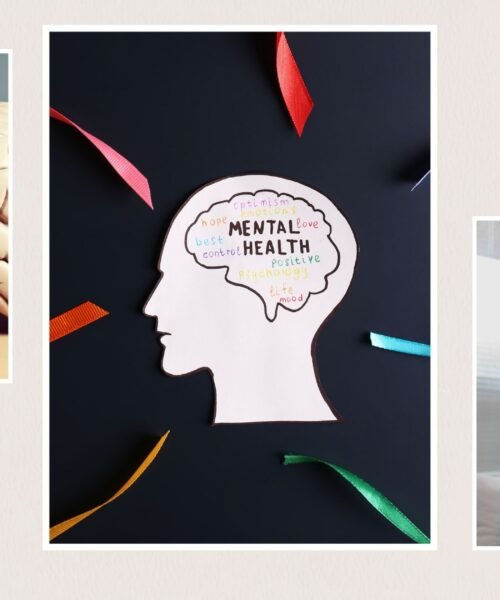Digital Marketing Tips for Protecting Mental Health
In the fast-paced world of digital marketing, maintaining mental health can often take a backseat. However, it’s crucial to prioritize mental well-being to ensure long-term success and happiness. This article provides practical tips and strategies to protect mental health while navigating the demands of digital marketing.
Understanding the Stressors in Digital Marketing
Digital marketing is a high-pressure environment that demands constant connectivity and performance. Understanding these stressors is the first step in managing them effectively.
High-pressure environment
Digital marketers often face tight deadlines and high expectations, leading to stress and burnout.
Constant connectivity
The need to be always online can blur the lines between work and personal life, causing mental fatigue.
Performance metrics and KPIs
Constantly monitoring performance metrics and KPIs can create anxiety and pressure to meet targets.
Recognizing the Signs of Mental Health Issues
It’s essential to recognize the signs of mental health issues early on to seek help and take preventive measures.
Common symptoms
Symptoms such as anxiety, depression, irritability, and fatigue are common among digital marketers.
When to seek help
If these symptoms persist, it’s important to seek professional help to address mental health concerns.
Creating a Healthy Work Environment
A healthy work environment can significantly impact mental well-being. Here are some tips to create a positive workspace.
Setting boundaries
Establish clear boundaries between work and personal life to prevent burnout.
Encouraging breaks
Regular breaks can help refresh the mind and improve productivity.
Promoting a positive culture
Foster a supportive and positive work culture to enhance mental well-being.
Time Management Techniques
Effective time management can reduce stress and improve efficiency.
Prioritizing tasks
Focus on high-priority tasks and delegate when possible.
Using productivity tools
Utilize tools like Trello, Asana, or Slack to manage tasks and collaborate efficiently.
Avoiding multitasking
Concentrate on one task at a time to improve focus and reduce errors.
Mindfulness and Meditation Practices
Incorporating mindfulness and meditation into your routine can help manage stress and improve mental clarity.
Benefits of mindfulness
Mindfulness can reduce stress, improve focus, and enhance overall well-being.
Simple meditation techniques
Practice deep breathing, guided meditation, or yoga to relax and rejuvenate.
Incorporating mindfulness into daily routine
Set aside a few minutes each day for mindfulness practices to maintain mental balance.
Physical Health and Its Impact on Mental Health
Physical health plays a crucial role in mental well-being. Here are some tips to maintain physical health.
Importance of exercise
Regular exercise can boost mood and reduce stress.
Healthy eating habits
A balanced diet can improve energy levels and mental clarity.
Getting enough sleep
Adequate sleep is essential for mental and physical health.
Building a Support System
A strong support system can provide emotional and practical assistance.
Importance of social connections
Maintain relationships with friends, family, and colleagues for support.
Seeking professional help
Don’t hesitate to seek help from mental health professionals when needed.
Peer support groups
Join support groups to share experiences and gain insights from others.
Balancing Work and Personal Life
Achieving a work-life balance is crucial for mental well-being.
Setting work-life boundaries
Define clear boundaries to separate work from personal life.
Scheduling personal time
Allocate time for hobbies, relaxation, and self-care.
Importance of hobbies and interests
Engage in activities that bring joy and relaxation.
Dealing with Negative Feedback and Criticism
Handling criticism constructively can help maintain self-esteem and improve performance.
Handling criticism constructively
View feedback as an opportunity for growth and improvement.
Learning from feedback
Analyze feedback to identify areas for improvement.
Maintaining self-esteem
Focus on your strengths and achievements to build confidence.
Continuous Learning and Development
Investing in personal and professional growth can prevent burnout and enhance job satisfaction.
Staying updated with industry trends
Keep up with the latest trends and developments in digital marketing.
Investing in personal growth
Take courses, attend workshops, and read books to enhance skills.
Avoiding burnout through learning
Engage in continuous learning to stay motivated and avoid burnout.
Utilizing Technology for Mental Health
Technology can be a valuable tool for managing mental health.
Mental health apps
Use apps like Headspace, Calm, or BetterHelp for mental health support.
Online therapy options
Consider online therapy for convenient access to professional help.
Digital detox strategies
Take regular breaks from digital devices to reduce mental fatigue.
Creating a Mental Health Policy for Your Team
A mental health policy can promote a supportive work environment.
Importance of a mental health policy
A policy demonstrates a commitment to employee well-being.
Key components of the policy
Include provisions for mental health support, resources, and training.
Implementing and promoting the policy
Ensure the policy is communicated effectively and integrated into the company culture.
Case Studies and Success Stories
Learn from companies and individuals who have successfully prioritized mental health.
Examples of companies prioritizing mental health
Highlight companies with successful mental health initiatives.
Success stories from digital marketers
Share stories of digital marketers who have improved their mental health.
Conclusion
Prioritizing mental health in digital marketing is essential for long-term success and well-being. By implementing these tips and strategies, you can create a healthier and more productive work environment.
FAQs
What are the common signs of mental health issues in digital marketing? Common signs include anxiety, depression, irritability, and fatigue. If these symptoms persist, it’s important to seek professional help.
How can I create a healthy work environment for my team? Set clear boundaries, encourage regular breaks, and promote a positive work culture to create a healthy work environment.
What are some effective time management techniques? Prioritize tasks, use productivity tools, and avoid multitasking to manage time effectively.
How can mindfulness help in reducing stress? Mindfulness can reduce stress, improve focus, and enhance overall well-being. Incorporate simple meditation techniques into your daily routine.
What are the benefits of having a mental health policy? A mental health policy demonstrates a commitment to employee well-being and provides support, resources, and training for mental health.










